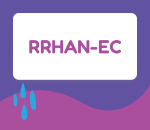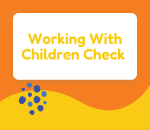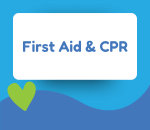Understanding the Importance of RRHAN Training in Early Childhood Education and Care (ECEC)
Safeguarding children from harm is paramount in Early Childhood Education and Care (ECEC). Educators, staff, and volunteers are critical in creating environments where children feel safe and protected. Responding to Risks of Harm, Abuse, and Neglect (RRHAN) training is essential in achieving this. This training is crucial for meeting regulatory standards and equipping professionals with…
Safeguarding children from harm is paramount in Early Childhood Education and Care (ECEC). Educators, staff, and volunteers are critical in creating environments where children feel safe and protected. Responding to Risks of Harm, Abuse, and Neglect (RRHAN) training is essential in achieving this. This training is crucial for meeting regulatory standards and equipping professionals with the skills to prevent and respond to child protection issues actively.
Why RRHAN Training is Essential in ECEC
1. Ensuring Compliance with National Child Safety Standards
RRHAN training helps organisations adhere to the National Principles for Child Safe Organisations, which provide a framework to ensure that children are safe, supported, and respected in educational and care settings. By undertaking this training, ECEC professionals can be confident that their organisation is meeting the child safety standards required by law.
2. Understanding Mandatory Reporting Obligations
In ECEC, educators are often uniquely positioned to notice signs of harm or neglect. RRHAN training clarifies the mandatory reporting obligations for professionals. This includes when and how to report suspected harm and ensuring that concerns are raised appropriately and promptly. Understanding these obligations is crucial for protecting vulnerable children and maintaining safety as a top priority.
3. Proactive Prevention of Harm
One of the core components of RRHAN training is taking a proactive and preventative approach. Educators and staff trained to recognise signs of physical abuse, neglect, emotional harm, or domestic violence can intervene early, reducing the risks and long-term effects of harm. Early intervention can significantly improve children’s health, social skills, and education outcomes, offering them a better start in life.
4. Enhancing Parent-Child Relationships
Another essential benefit of RRHAN training is its ability to foster positive parent-child interactions. When educators understand the signs of potential harm, they can provide timely support to families, helping to improve relationships and ensuring that children grow up in a nurturing and safe environment. RRHAN training allows educators to offer assistance without stigmatising families, ensuring that intervention is supportive and nonjudgmental.
How to Obtain RRHAN Training
For those looking to complete RRHAN training, it’s simple to get started. Our registered training partner, Gowrie South Australia (RTO Code 4436), offers both fundamental and masterclass courses to cater to different needs:
- 2-hour online Fundamentals Course: This course is perfect for those who are new to RRHAN training or whose certificate has lapsed. It covers the basics of child protection and the responsibilities of professionals in identifying and reporting harm.
- 4-hour Masterclass Session: This course, available both face-to-face and online, is designed for those completing RRHAN training for the first time or renewing their certification. It builds on the fundamentals and equips professionals with the tools to respond effectively to situations of harm.
Additional Resources
To help guide you through your RRHAN training and requirements, here are some valuable resources:
- Read more about RRHAN Training.
- Study with Gowrie SA.
- Understand the Requirements from the South Australia Department for Education.
Connecting Teams, Talent & Educators
Thank you for reading our latest blog. If you are a candidate, click to view our Permanent Jobs or explore our latest Temporary Opportunities.
If you are a client looking to find your next permanent or temporary staff member, Entrée Early Years can help. Hire or Book Early Childhood Staff today!







